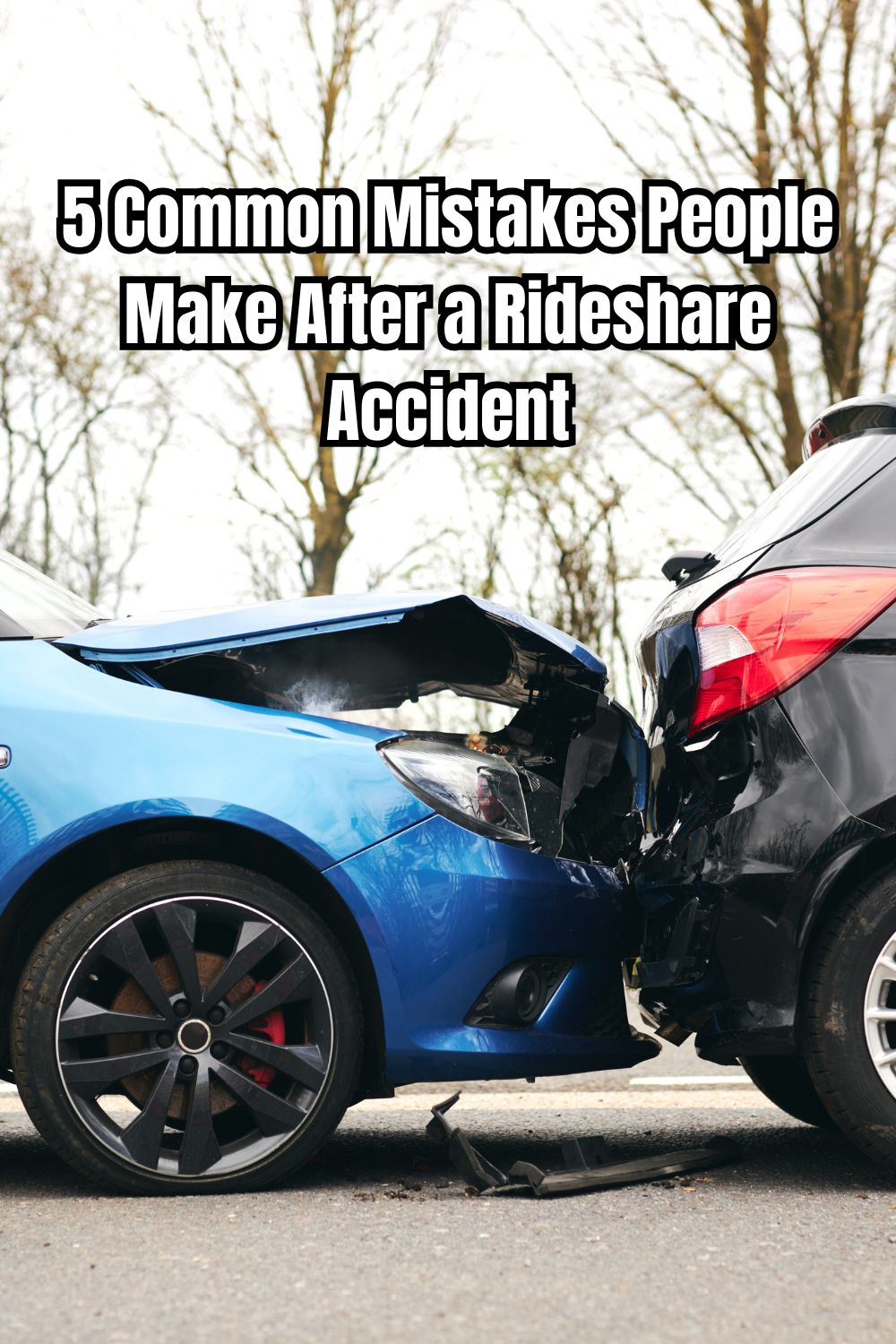Do you utilize rideshare? Find out 5 Common Mistakes People Make After a Rideshare Accident
5 Common Mistakes People Make After a Rideshare Accident
Rideshare services like Uber and Lyft have become part of everyday life. They’re quick, simple, and always just a tap away. But when a ride suddenly turns into a wreck, things shift fast. You’re left stunned, and your thoughts start racing. But, right there, in all that confusion, people often make mistakes that can come back to haunt them later.
Luckily, knowing what not to do in those early moments can make a big difference. It doesn’t just protect your health—it can also protect your finances, peace of mind, and legal rights.
So, stick around to learn some common missteps you must avoid to navigate the aftermath with clarity, not regret.
Ignoring the Shock and Not Checking for Injuries
After an accident, most people are still running on adrenaline. You feel shaken but not necessarily hurt, so you tell yourself it’s nothing—maybe a few aches, but nothing worth worrying about.
That’s where the danger lies. Not all injuries show up right away. Things like concussions, internal bruising, or soft tissue damage often take time to appear. If you wait too long to see a doctor, you’re risking your health and giving insurance companies a reason to question your injury claim.
Getting checked, even if it seems minor, can save you trouble. It’s a smart first step, no matter how small the crash feels.
Leaving Without Gathering Information
It’s tempting to assume the rideshare app has everything handled. After all, it shows the driver’s info, trip details, and ride time. But don’t rely on that alone.
There’s more to collect. You’ll need names and numbers—witnesses, other passengers, and even nearby bystanders who saw what happened. Take photos from different angles, snap the damage, and capture the location—signs, traffic lights, and the street itself.
You might feel rushed or shaken, but giving yourself five extra minutes to gather what you can could make all the difference later. It’s about covering your bases, just in case the unexpected happens.
Waiting Too Long to Get Legal Help
It’s easy to think, “This doesn’t seem serious. I can deal with it myself.” But rideshare accidents often come with layers—multiple insurance policies, different parties involved, and confusing terms hidden in fine print.
Without someone in your corner, knowing if you’re being treated fairly or getting what you deserve is tough. That’s why legal help isn’t something to push aside.
Luckily, an expert rideshare accident attorney can offer you early guidance, sort through the mess, and explain your rights clearly. The best part is that most of them won’t charge anything upfront. They work on a contingency fee, meaning they only get paid if they win you a settlement through court or early negotiations.
So, rather than wait for things to get complicated, getting help from the start can save you from feeling overwhelmed later.
Underestimating Emotional Impact
Crashes don’t just leave physical bruises. They can mess with your head, too. It’s not unusual to feel jumpy, anxious, or afraid to get back in a car. But many people dismiss those feelings, thinking they’ll pass.
Sometimes they do—but sometimes they stick around and affect your daily life. You might have trouble sleeping, lose focus at work, or feel irritable for no apparent reason. That’s not something to ignore.
Your mental health matters just as much as your physical recovery. Talking to a therapist, writing down how you feel, and being honest help. Also, don’t leave this part out if you file a claim. Emotional distress is real—and it deserves attention.
Trusting the Insurance Company Too Soon
Right after the accident, you might get a call from someone at the insurance company. They sound pleasant enough. They ask how you’re doing and may even offer a quick settlement.
It might feel like a relief—someone’s handling it. But here’s the thing: their job isn’t to look out for you. It’s to close the case fast and for as little money as possible.
That early offer may not cover your long-term care or future expenses. So, avoid rushing into agreements, don’t give recorded statements without advice, and be cautious with your words.
Wrap Up
The truth is, no one expects to be in a rideshare accident. But when it happens, what you do in the hours and days afterward matters more than you think.
Rushing through recovery, skipping help, or putting too much trust in insurance reps can leave you with more problems than solutions. But these mistakes are avoidable—with the right mindset, support, and patience. Your peace of mind and future deserve that kind of care.

Leave A Reply!